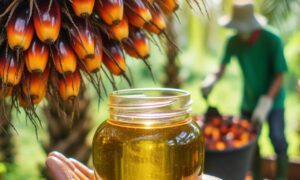Indian rapeseed planting to hit record high due to favourable weather and Chinese demand

India’s rapeseed planting is set to hit a record high due to strong Chinese demand for rapeseed meal, profitable prices, and favourable soil moisture from good rainfall. Sown area is up 13.5% so far, with total acreage expected to rise 7–8%, helping reduce India’s costly edible oil imports.
Rapeseed planting in India is expected to hit a new high this year due to record Chinese rapeseed meal purchases and above-average rainfall that resulted in favourable soil moisture for the crop, according to a Reuters report.
As the country’s primary winter-sown oilseed, the surge in rapeseed production was also likely to help India – the world’s largest importer of edible oil – limit costly overseas purchases of cooking oils, the 5 November report said.
“Farmers made great profits from last year’s rapeseed crop, so this year, they’re planting even more of it,” Anil Chatar, a leading trader based in Jaipur in the northwestern state of Rajasthan, was quoted as saying.
The combined planting area for rapeseed and mustard – a closely related crop – was expected to increase by 7% to 8% this year, he said.
Indian farmers typically plant rapeseed in October and November. To date, they had planted 4.17M ha this year, a 13.5% increase compared to the same time the previous year.
The country planted 8.93M ha of rapeseed last year, higher than the five-year average of 7.9M ha, the report said.
Domestic demand for rapeseed oil had been good this year, while strong export demand for rapeseed meal had come from China, B V Mehta, executive director of Solvent Extractors’ Association of India (SEA) was quoted as saying.
China had increased rapeseed meal shipments from India after Beijing imposed a 100% retaliatory tariff on rapeseed meal and oil imports from Canada – its top supplier – in March, Reuters wrote.
In the first six months of the current fiscal year, which began on 1 April, China imported a record 488,168 tonnes of rapeseed meal from India, compared to 60,759 tonnes for the entire 2024/25 fiscal year, the SEA data showed.
Strong demand for both meal and oil had kept rapeseed prices above the minimum support price of INR5,950 (US$68)/100kg set by New Delhi for last year’s crop, Chatar said.
India has increased the minimum support price for the new season’s rapeseed by 4.2% to INR6,200 (US$70).
“Rapeseed has way more oil than soyabeans. If production keeps up with the planting, it’ll help slow down the growth in India’s edible oil imports,” a Mumbai-based dealer with a global trade house, who declined to be named, was quoted as saying.
India meets nearly a third of its cooking oil demand through imports of palm oil, soyabean oil and sunflower oil from Malaysia, Indonesia, Brazil, Argentina, Ukraine and Russia, according to the report.
To Read more about Edible Oil News continue reading Agriinsite.com
Source : OFI Magzine















